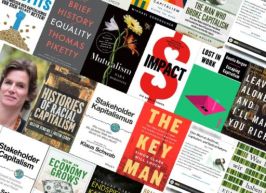Join getAbstract to access the summary!

Join getAbstract to access the summary!
Daniel Ben-Ami
Cowardly Capitalism
The Myth of the Global Financial Casino
Wiley, 2001
What's inside?
Is risk management dragging down the world’s economy?
Recommendation
Let’s start out this review by stating up front that we disagree with Daniel Ben-Ami’s assertion that a preoccupation with risk measurement and management is a detriment to the global economy. With that out of the way, we can say that Ben-Ami presents a unique analysis of the modern global economy that is not at all without merit. His contention that lagging growth is a greater peril to the world’s economy than financial instability is reasonable and backed up by ample evidence and illustration. And his position that increased regulation could be doing more harm than good will be embraced by all free traders. On the basis of these discussions alone, getabstract recommends this book to anyone thinking seriously about international financial systems. But this book is perhaps most useful as a starting point for debate, which it will certainly generate in the mind of any informed reader. While you might quibble with Ben-Ami’s conclusions - as we do with his assertion that the threat of the 1990s financial crises was overblown - you will not be bored.
Summary
About the Author
Daniel Ben-Ami has worked as a financial journalist in London for 15 years. He has written for several national publications in the United Kingdom, including the Financial Times, Guardian, Independent, Sunday Times and Prospect magazine and numerous specialty journals. He has additionally written on the Middle East for the Economist Intelligence Unit and contributed to Cultural Difference, Media Memories on media images in Japan. He was editor of Investment Adviser, specialist weekly newspaper on mutual funds for four years, and is now a senior editor for Morningstar in London.






















Comment on this summary